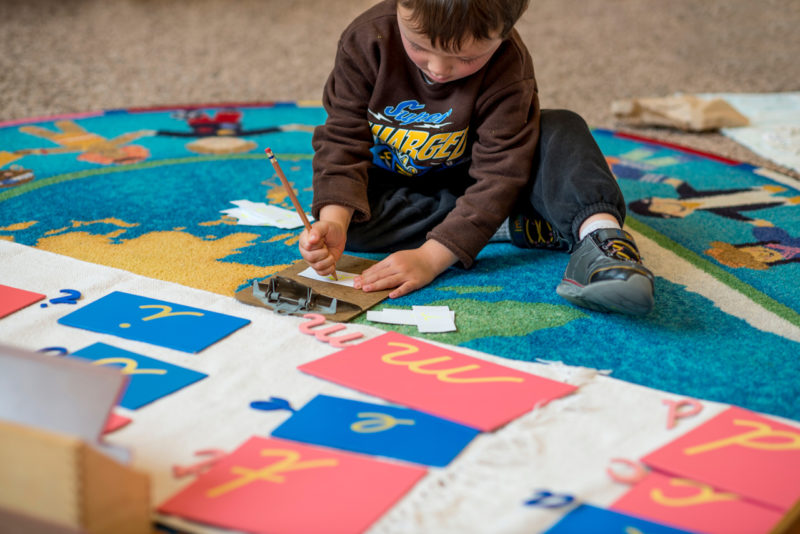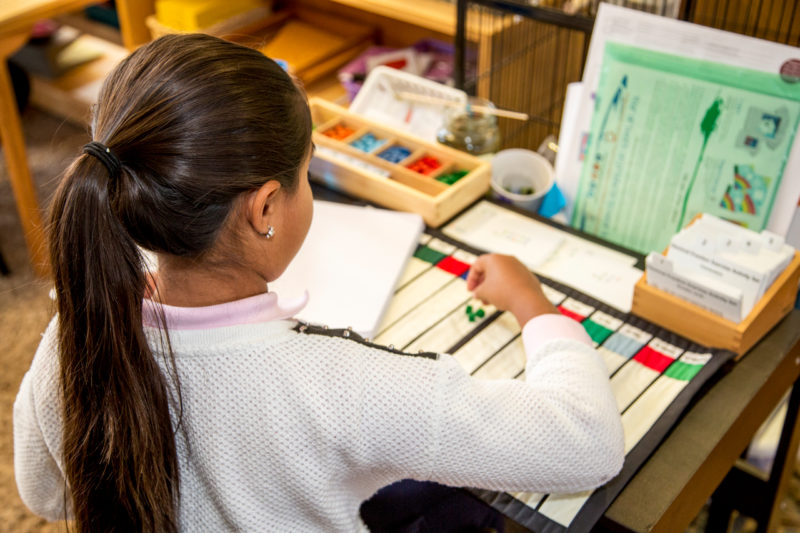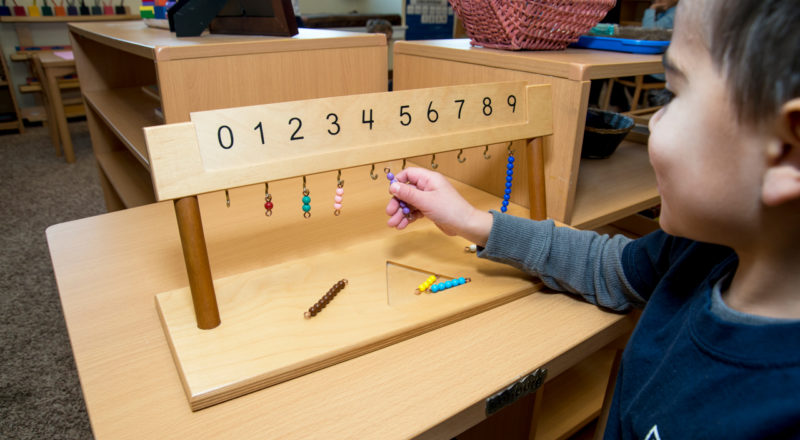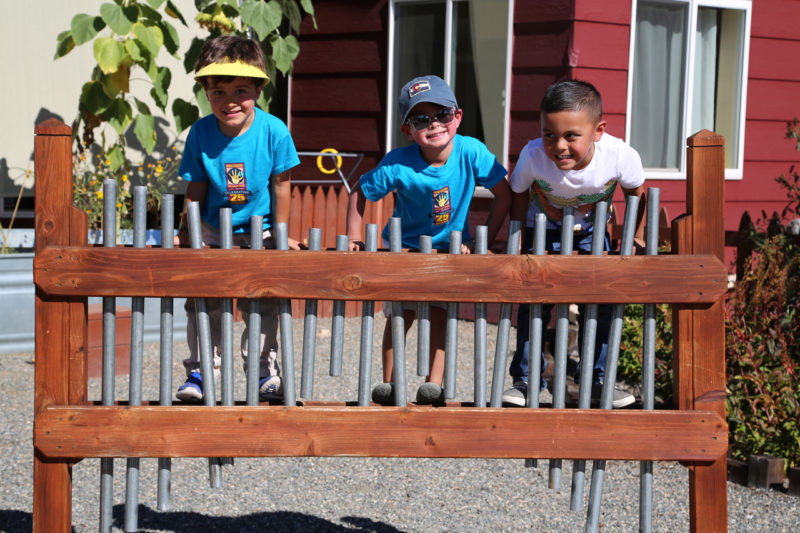Learn to Teach Your Children Life Skills
Developing life skills is vital to a child’s success, so don’t leave it to chance. Learn to nurture your child’s independence, resilience and more.
With all the emphasis on reading, writing and arithmetic, schools often overlook how much more a child needs to learn to be successful in life. No, we’re not merely talking more STEM and humanities, but the life skills children will need as adults, at home and at work, in any career and at any life stage. Independence, resilience, cooperation, reliability, organization, time-management, and more require nurturing and support in order to develop properly. Unfortunately, most education systems prioritize the accumulation of facts and leave the development of life skills to chance.
Teach Your Children Life Skills
Montessori is one of the few systems that gives equal priority to the development of how each child lives as it does to the three R’s. In fact, we know the one supports the other. A child whose independence, focus, organization, and motivation have been carefully nurtured is a child with a more robust foundation for learning. A lot goes into the Montessori method, but two of the guiding principles are to give each child the freedom to do it themselves, and to afford them the room to fail.
Help me to do it myself!
It is hard to balance supporting your child while simultaneously letting go and allowing them the freedom to learn, explore and develop. Life skills are developed from within and cannot be imposed by outside forces, so you must be willing and able to step back.

As children move from infancy into toddlerhood, children naturally start to push parents away. “I want to do it myself!” becomes a common phrase. This is the ideal time to begin consciously allowing and encouraging your child’s independence. Where they are successful on their own—e.g. tying their shoes—acknowledge their accomplishment and set the expectation that they are in charge of tying their shoes.
As children grow and change, they will move in and out of their enthusiasm for being independent and doing things for themselves. The foundations and expectations you laid early on can be built upon as children get older, maintaining their independence even when they’d rather you did things for them. When the expectations for your children are consistent and clear, there is more order to their daily lives, which not only reduces any anxiety they might be feeling, bur promotes an affinity for a well-ordered life. When they grow up, they will be more motivated to keep their adult lives organized.
The Montessori classroom uses this method to not only teach children, but teach them how to learn, cultivating a lifelong love of learning. Children in the Montessori classroom exercise their independence throughout their lessons, unaware of the carefully prepared structure in their surroundings guiding their development, including the ever-present support system of their teachers. They learn what we need them to learn, with all the joy they bring to activities they choose to do themselves. And when they achieve success, they become more confident in their abilities and independence.
You can apply this method at home as well. Let the following suggestions, organized around age, be your starting point and guide as you consider what your child can do for themselves.
Toddler
- Food: Choose independently from healthy snacks made available to your child; Simple food items to “prepare” – peel an orange, slice a banana
- Clothing: Dress / undress self; Help choose own clothing
- Navigation: Learning who lives where in your neighborhood – your home, your neighbors’; Common landmarks on your regular routes – zoo, library, museums, parks, stores, restaurants, etc.
School-Aged
- Food: Help pack snacks and lunches; More complex food prep: slicing vegetables and fruits, peeling hard boiled eggs, making sandwiches, etc.
- Clothing: Choose own clothing; Help fold and put away laundry; Successfully navigate buttons, zippers, laces, etc.
- Navigation: Address and phone numbers; How to get to school, park, relative’s homes; Basics of geography and directionality; Introduction to reading maps
Middle School
- Food: Pack snacks and lunches; Begin to support with cooking and meal preparation (can begin earlier as desired, especially if interest is shown)
- Clothing: Work together with parents to choose clothing to purchase; Consider giving them a budget for buying new school clothes
- Navigation: Reading a map; Plan the family hike/outing; Plan a route for riding their bike; Introduction to how to plan and use public transportation (Uber does not count!)
High School
- Food: Cultivating healthy eating habits by meal planning, shopping and cooking family meal(s)
- Clothing: Sort, wash, fold, put away laundry; Shop for own clothing within a budget or with money earned
- Navigation: Planning and navigating a trip; Confidently and independently using public transportation; Learning basic rules of the road; Learning to drive!
To learn more strategies for developing life skills in the home, download our free eBook.
Failure is an option.
I know it is hard to believe as a parent, but failure is a critical component to learning. The desire to save our children from hardship and mistakes is visceral, yet allowing our children to deal with consequences and move on after making mistakes helps them to build resilience and grit. Companies such as Google seek out candidates with grit, who not afraid to put their ideas out there and can work through difficult problems.
Childhood is a great time to learn these skills, because the stakes are not as high (and children naturally have a bit of grit to them). What’s more, experiencing the natural consequences to their actions—taking the parent out of the equation—is often the most realistic teaching tool for a child. For example, if they forget to do their homework, don’t remind them or force them to do it. Let them deal with the natural consequences at school the next day. Then they’ll be more motivated to remember to do their homework, and not rely on you for the reminder.

In our classrooms, when a child makes a mistake we allow time and space for the child to come up with a solution or make a plan for moving forward on their own. If the child cannot come up with a solution or plan on his own, the teachers will then ask for suggestions or ideas of what could be done, including what other students have tried in the past. As Nelson Mandela said, “Do not judge me by my successes. Judge me by how many times I fell down and got back up again.”
In some situations, the child may not realize they have made a mistake, at which time our teachers will step in. Even then, the teacher’s goal is not to state, “You did this wrong,” which would deflate the child’s confidence in their own independence. Instead, if a child in preschool forgets to put on an apron before painting and get paint on his shirt, one of our teachers might say, “I see that there is paint on your shirt. What can we do about that? What could you have done before starting to paint?” We want to solve the problem cooperatively with the child, supporting them as they move through the situation and determine what could be done in the future to avoid the consequences they experienced.
As parents, a great way to reinforce that it is OK to make mistakes is by showing your children when you make them yourself. Own it when you make a mistake and problem solve out loud with your children. You may even discover your children have some good solutions of their own.
Want more resources for continuing your child’s education? Download our free eBook, “Fostering the Development of Life Skills at Home.”

Conclusion
Life skills are critical. Children need our guidance, example and support to develop them, but they also need us to give them the space necessary to find their way. It’s a process that requires consistency, accountability and encouragement. But remember, it’s not up to you alone to create independent, resilient, and successful adults, your children are a key player in their own development. If you parent in partnership with your children, you will find it is much easier to raise confident, capable, responsible human beings.
If you are interested in providing your children with an education that builds a comprehensive foundation for a successful life, we encourage you to come by one of Montessori Children’s House of Denver’s campuses to see our classrooms in action. We guarantee you will leave impressed. Schedule an individualized tour today.



